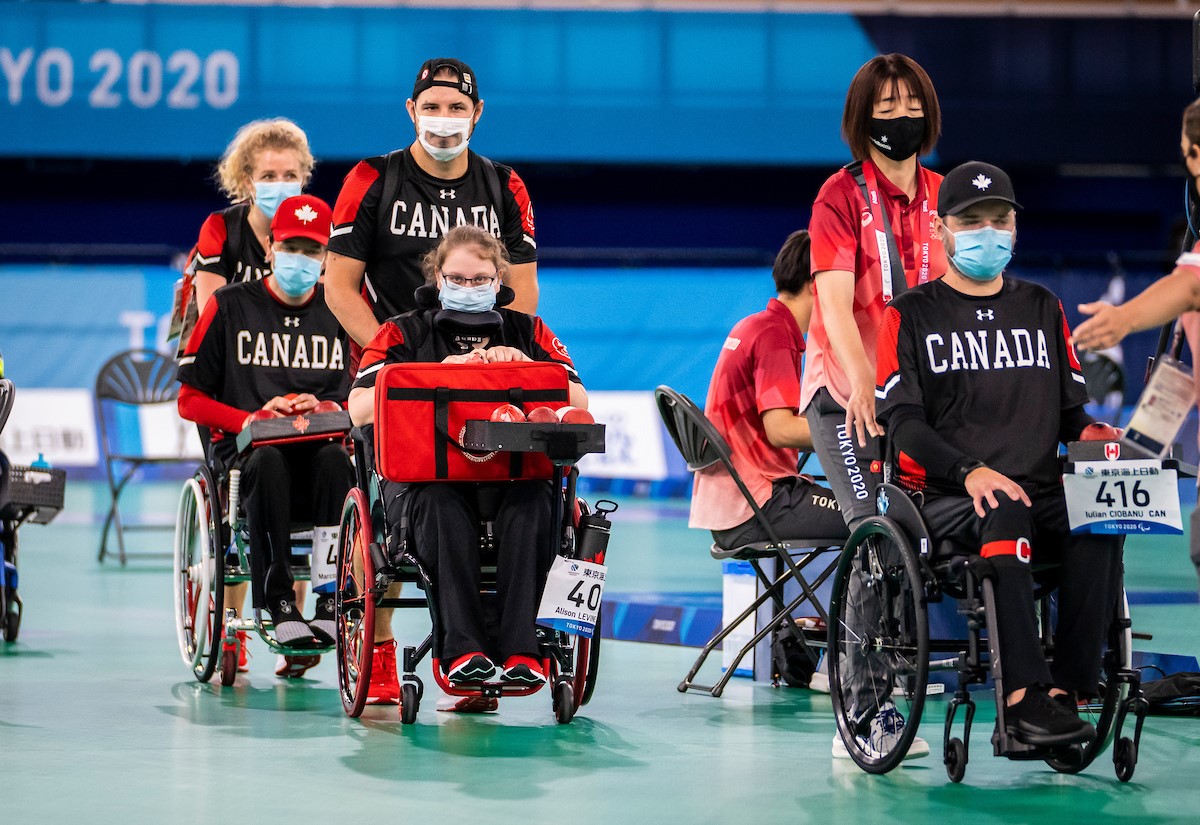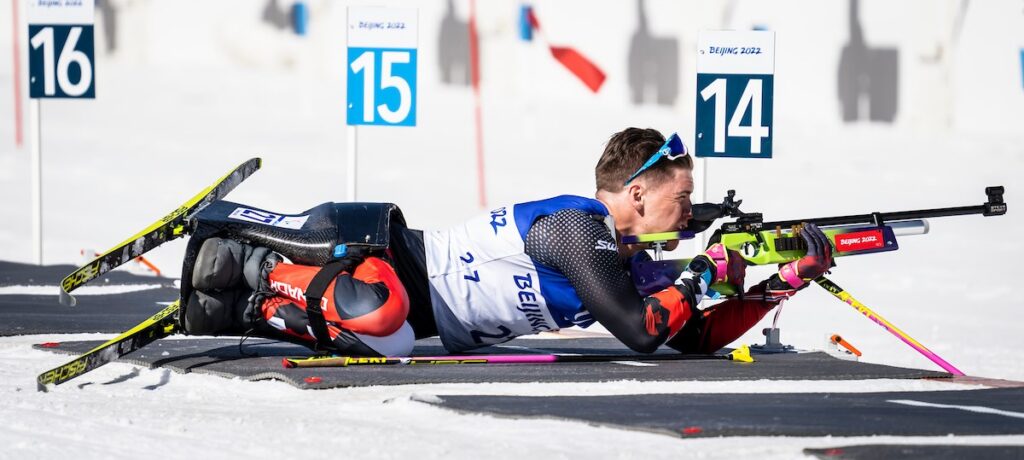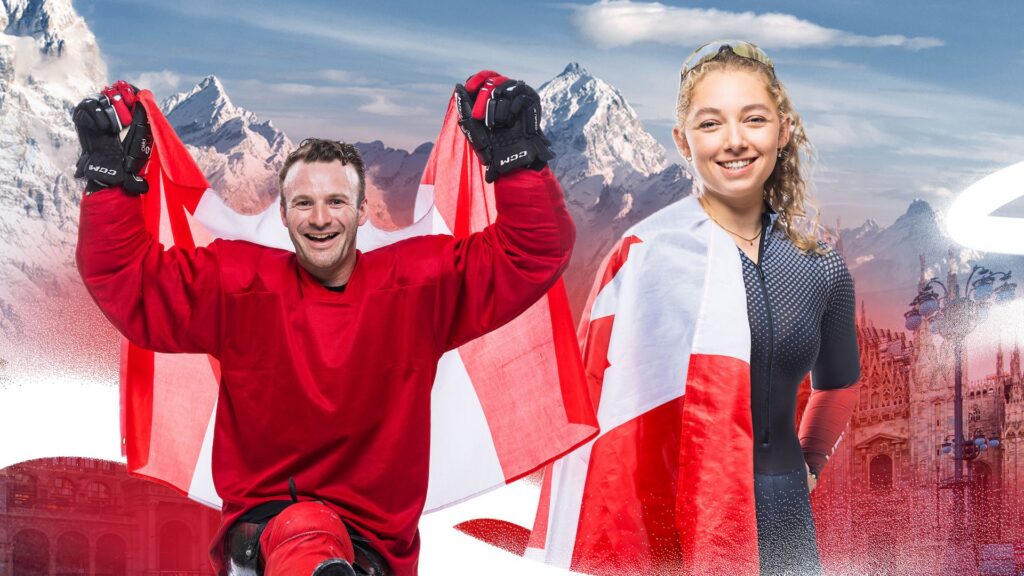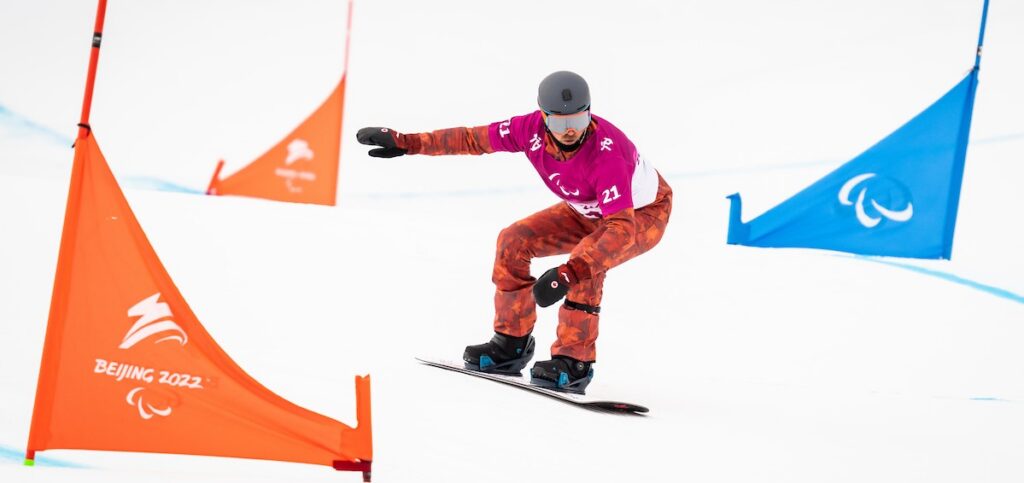Tokyo Paralympic Games leaves Canadian boccia players with mixed emotions
2022 season a new beginning

MONTREAL – César Nicolai, the head coach of Canada’s boccia team, knew he faced a difficult task after the self-described subpar showing of his troops at the 2020 Paralympic Games in Tokyo last summer. This talented Canadian team needed a positivity injection.
Of course the major challenges started in March 2020 with the world embroiled in a pandemic which cancelled training sessions and major competitions and eventually postponed the Games.
The 2021 season opened little by little with the Games held in bubble conditions. In the end, the results were less than expected for the four-member Canadian squad, but the lessons learned were invaluable.
“The Paralympics for the team was very hard,” said Nicolai. “The atmosphere there was very different than Rio and London, but we ended up learning a lot of things. We progressed and we put some things in place in training to change the way we play. It was a good learning opportunity to be there and live this event.”
Leadership from veteran players was crucial to get back on track in time for this week’s world championships in Rio.
Montreal’s Alison Levine, who was Canada’s top-ranked player heading into the Paralympic Games at world number-two in the BC4 class, eventually admitted she beat herself up too much after Tokyo but now reflects on the experience in a more positive light.
“Tokyo was very exciting, with getting back to competition after COVID,” said the two-time Paralympian, who did not advance out of the preliminary round in Tokyo. “But a little hard coming back because we didn’t do as well as we thought we would or should have. Since Tokyo we’ve really confirmed we are on the right path. I need to keep competing and training and focus on the next Games which are only three years away in Paris.”
With her recent success, Levine felt the table was set for her to reach the podium in Tokyo.
“It was pretty hard to come not just without a medal but come feeling I hadn’t performed at my best,” she said. “I know I can do better than that and I’ve proven I can do better than that.”
The disappointment was crushing, and Levine knew she needed strength.
“I had to come home and be kind to myself and remind myself what I’ve been through over the previous two years,” she said. “It just wasn’t my time to go and win that medal. I guess there were too many things against me.
“I know now that bad performances are not the end of the world. I didn’t quit playing boccia and it’s something I still love and enjoy doing. I want to stay with it and hopefully have a better outcome in Paris.”
Three other players from this week’s world championships team were also in Tokyo: Marco Dispaltro, Iulian Ciobanu and Danik Allard. A three-time Paralympian, Dispaltro has the experience to know not to dwell on the past and his positive energy is certainly influencing his teammates.
“I think it’s just being there for them is important and rewarding for me,” said Dispaltro, 55, a BC4 pairs bronze medallist at the 2012 London Paralympics. “For example, with Danik I’ve been training with him since he was 14 and now to see him on the national team, I have immense pride. Danik has worked hard for that and to be part of his journey and help him along is the best gift you can ever have.”
For Allard, who turns 22 on Saturday, the Tokyo Games were all about experience.
“I’m proud to say that I can compete against people at this level and challenge the top players in the world,” said the Bois-des-Filion, Que. resident, who competes in the BC2 class. “That’s a big a part of my career and I’m proud to represent my country.
“My mentors have really showed me a lot about the game and now I’m on the team, they help me more because I can play against them. We also play as a team so that develops my leadership skills, my style and throwing precision.”
Ciobanu, competing at his third worlds this week, says the Canadian team learned that practice and training lacked for Tokyo because of unforeseen interruptions.
“Because of the pandemic, our training was inconsistent and that cost us in Tokyo,” said the two-time Paralympian from Montreal. “Before a big event like the worlds or the Paralympics you have to train a lot. That’s the biggest lesson I learned.”
BC4 player Ciobanu moved to Canada from Moldova 27 years ago with a psychology degree in his pocket. In a strategic sport like boccia he admits that he uses some of the tools he learned in school.
“I never thought I would be able to do sport,” he said. “When I discovered boccia I just loved it, especially the tactical aspects. It’s like playing chess, you have to think one, two, even three shots ahead and also take into account many details; things I learned in psychology like patience and concentration are things you really need to work on.”
It appears that message has spread to his teammates.
An eight-member Canadian squad, including the nation’s four Tokyo 2020 Paralympians, is competing at the 2022 World Boccia Championships December 6-13 in Rio de Janeiro. For more information, CLICK HERE.



"*" indicates required fields
"*" indicates required fields